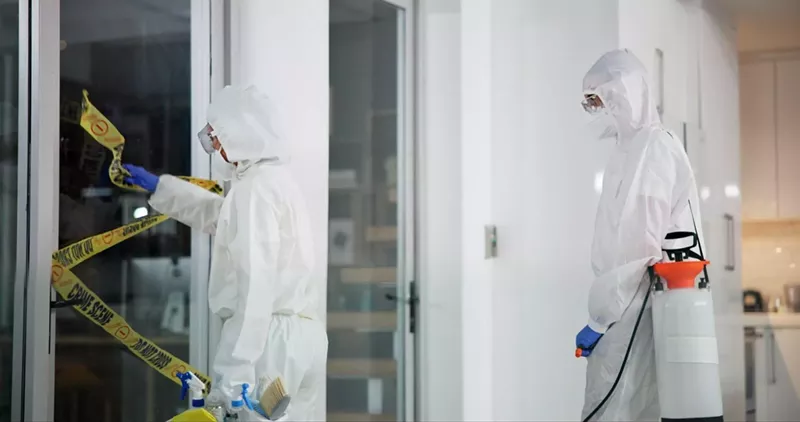
Tragedy can strike unexpectedly. But the aftermath of a traumatic event lingers long after the initial shock. Before leaving emotional scars, these incidents create complex challenges that often require immediate and long-term intervention—including professional trauma cleanup services. These specialized solutions bridge the gap between devastation and restoration so you can take the first step toward recovery.
But why is a thorough cleanup necessary, and what does it entail? Let’s uncover the answers below.
Understanding the Complexities of Trauma Scenes
Every traumatic incident—whether violent crimes, unattended deaths, or accidents—leaves behind biological and emotional residue. Each scenario presents unique challenges that demand expertise. Biohazard specialists understand that the task requires more than cleaning. As such, they adopt an all-inclusive approach to address both tangible and intangible threats. So, how do they do it? Here’s a breakdown of what trauma cleanup services entail.
Comprehensive Risk Assessment
Biological materials like human blood, bodily fluids, animal waste, and other infectious substances can harbor dangerous pathogens that pose significant health risks and potential health complications. However, the risks associated with trauma scenes are far beyond what the naked eye can see.
Professional crime scene technicians conduct thorough risk assessments. Using advanced diagnostic tools and techniques, they can identify the following:
- Microscopic biological contaminants: Various bloodborne pathogens and bacteria survive long after the initial event. Advanced testing and specialized equipment allow professionals to detect and neutralize them effectively.
- Potential pathogen transmission routes: Trauma cleanup professionals can trace and map out potential transmission pathways. They consider factors like ventilation, surface porosity, and material absorption to prevent the spread of diseases.
- Hidden areas of contamination: Professional cleaners survey unexpected contamination zones and look behind walls, under flooring, and in ventilation systems.
- Chemical residue: Besides biological risks, traumatic events can expose occupants to hazardous substances, as with a suicide cleanup. Chemical contamination can come from multiple sources released during high-stress situations.
The goal of this assessment is to create a safe environment that’s free from biological dangers. Put simply, trauma cleanup professionals meticulously identify and address potential risks to offer you peace of mind and a proper foundation for recovery.
Cross Contamination Prevention
High-quality safety gear is crucial for comprehensive protection. Crime scene cleaners wear multi-layered personal protective equipment (PPE) to shield them from biological and chemical hazards. These include:
- Hazmat-grade protection suits made from materials protective materials
- Full-face respirators with industry-compliant filtration systems
- Specialized gloves that are resistant to chemicals and cuts
These devices guarantee that the staff can perform their tasks and manipulate various cleaning tools without being exposed to the dangers lurking in the environment.
Advanced Decontamination Techniques
The staff will set up cleaning and decontamination stations to start with the removal process. One of the most common methods they employ is molecular-level decontamination. This procedure uses chemical agents to break down biological materials into their simplest forms for easy removal.
Moreover, modern sanitation technologies like hydroxyl generators, ozone treatments, and ultraviolet (UV) light sterilization eliminate microscopic contaminants. Professional cleaning services likewise remove toxic chemicals, including tear gas remediation.
Standard protocols dictate multi-stage cleaning and decontamination approaches. Every professional trauma cleanup involves initial removal, deep cleaning, chemical neutralization, multiple rounds of sanitation, and final verification testing.

Specialized Waste Management
Infectious materials aren’t treated as standard waste. They’re carefully collected, sealed in biohazard-rated containers, and disposed of through specialized systems that ensure complete yet safe destruction. More than deep cleaning, though, other things make their services special.
Conscious Biohazard Remediation
The presence of a traumatic scene can become a constant emotional trigger. When this happens, surviving family members experience repeated psychological distress that slows down the healing process. Crime scene cleaners understand this dynamic, and this makes their services crucial.
Complete Restoration
Cleaning companies remove more than just the visible signs of a traumatic incident. Their services also include restoring spaces to their original condition. Doing so helps remove psychological barriers that hinder family members from moving forward.
Discrete and Compassionate Intervention
Bioremediation specialists or forensic cleaners don’t investigate deaths, so they’re not required to stay objective. As such, they can approach each incident—whether a crime scene or not—with empathy and understanding. They know that they’re not just cleaning a space but are helping individuals as they go through profound grief and trauma.
Trauma-Informed Approach to Cleaning
Accredited cleaning companies must undergo regular training to keep their license and insurance coverage updated. Apart from complying with industry standards, their staff understand the nuances of cleaning trauma scenes. You can expect them to act appropriately and approach you with sensitivity.
Time is crucial in crime scene cleanups; that’s why biohazard removal specialists are available round-the-clock and act quickly. A rapid response helps minimize prolonged exposure to potentially hazardous environments for occupants.
Services That Go Beyond Cleaning
Professional cleaning services are a critical step in every recovery. They address both physical and emotional aspects. In doing so, they remind us that restoration is possible even in the most challenging circumstances.
Each healing journey is unique, but compassionate and professional support is always available to point you in the right direction.






